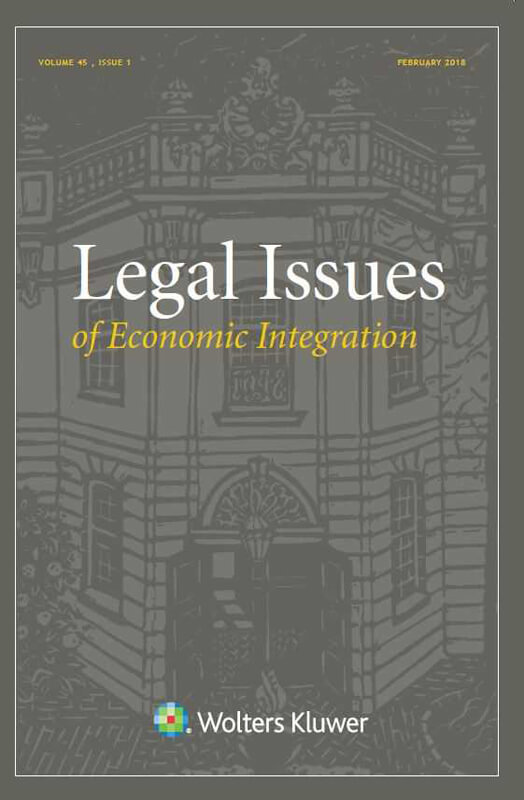Home > All journals > Legal Issues of Economic Integration > 51(1) >

$15.00 - Rental (PDF) *
$29.00 - Article (PDF) *
Tamara Grigoras
Legal Issues of Economic Integration
Volume 51, Issue 1 (2024) pp. 87 – 108
https://doi.org/10.54648/leie2024004
Abstract
In recent years, many states have undertaken to green their free trade agreements (FTA). As the pace of this evolution towards greener trade relations continues to accelerate, it has also been met with resistance. The inclusion of environmental commitments in FTAs has sometimes been dismissed as an attempt by high-income countries to level the playing field for their market actors by raising environmental standards abroad. Against this background, this article aims to investigate what underlying motive(s) (high-income) states pursue when they negotiate environmental provisions. Using the United States-Mexico-Canada Agreement (USMCA) as a case study, it is argued that it is possible to rely on the legalization of these commitments to unravel treaty parties’ motives for negotiating such rules in the first place. In the case of the USMCA, it is found that the agreement’s environmental commitments could be interpreted as mirroring concern either for the environment or for unfair foreign competition. A closer look at the negotiation process leading to the adoption of the agreement suggests that it was mainly – although certainly not exclusively – out of environmental concerns that stringent environmental commitments were included in the USMCA.
Keywords
free trade agreements, US trade relations, economic integration, United States-Mexico- Canada Agreement, asymmetries of power, negotiation of treaties, environmental provisions, green protectionism, trade and sustainable development, legalization of international commitments
Extract
